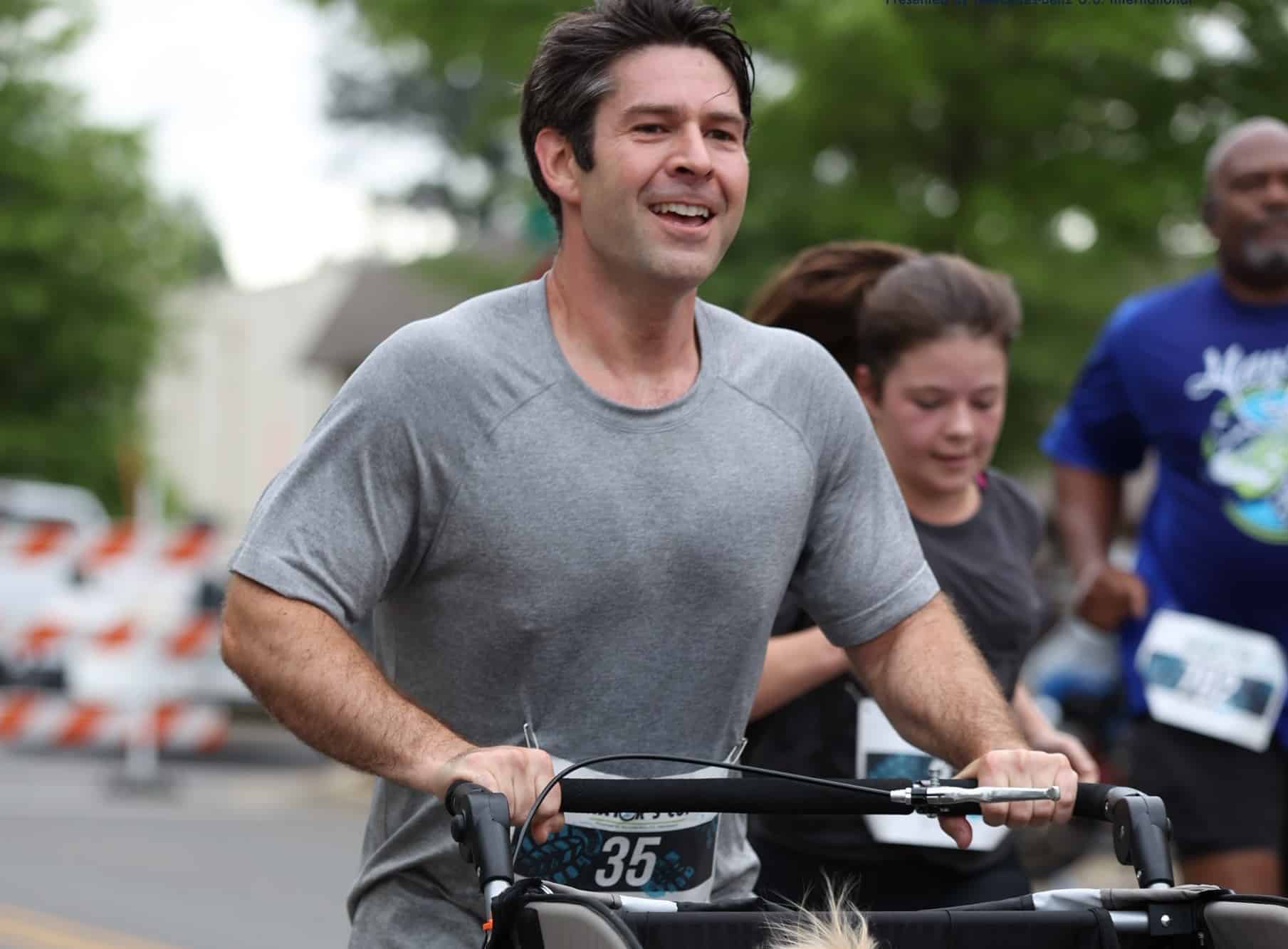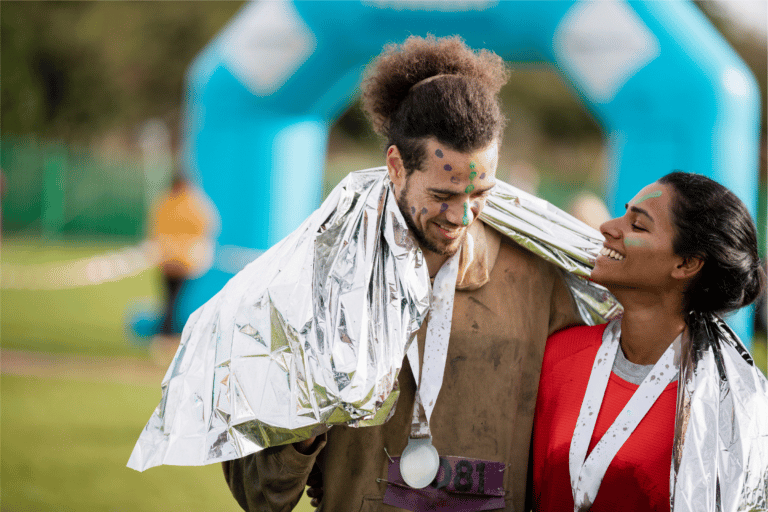Running Hecklers (6 Practical Strategies to Overcome Them)
Competing in a long-distance running race is difficult enough by itself; however, when you round a corner and find yourself dealing with active hecklers, the situation can get aggravating. No one likes to be heckled, but belligerent race hecklers can be particularly difficult to handle.
Running hecklers are people who shout insults or distractions at runners during a race. It’s important to ignore them and stay focused. Remember, hecklers usually try to throw you off your game, so don’t let them get under your skin. If the heckling becomes threatening or physically aggressive, report it to race officials or law enforcement.
This article will explain the heckling phenomenon and offer advice for dealing with these hooligans. Keep reading to learn more about race heckling and how to handle it.
What is active heckling during a run?
Hearing taunts while you run can be frustrating, even more so when your goal is to win a race. Heckling comes in two forms, and how you handle them differs. Passive heckling can be ignored somewhat, but active heckling might need some intervention if it gets too out of hand.
Active heckling during a run is when a person or group of people actively try to distract, intimidate, or otherwise disrupt a runner’s performance by shouting or making noise, gesturing or making physical movements, or engaging in other forms of disruptive behavior.
This type of heckling is generally considered to be more aggressive and malicious than passive heckling, which might consist of jeering or taunting from a distance but does not involve direct interaction with the runner. Active heckling can be disruptive and negatively impact a runner’s performance and overall race experience.
Why are runners being heckled?

In the past, various types of heckling or crowd interference were more common in large professional races such as the Boston Marathon, but there are still instances where heckling can rear its head today.
There are a number of reasons why runners may be heckled during races. Some people do it for entertainment, while others do it out of frustration or anger. In some cases, heckling may be a way for people to cope with their own feelings of inadequacy or insecurity.
Heckling can take many forms, ranging from verbal insults and taunts to physical acts of aggression. It can be particularly distressing for runners who are already struggling with the physical demands of the race and may not have the mental energy to deal with additional stress.
Heckling is unacceptable behavior, and runners should not have to endure it. If you are a runner who is being heckled, it’s important to try to stay focused on your race and not let the heckling distract you. If the heckling becomes severe or threatening, you may need to seek help from race organizers or law enforcement.
How do you manage running hecklers?

If you find yourself constantly dealing with trash-talkers and hooligans, you may want to have a plan.
Here are a few strategies for dealing with running hecklers:
- Ignore them
- Practice positive self talk
- Heckle them back
- Use humor
- Laugh it off
- Get help
- Set up your own rally
Ignore Them
If you are able to do so, it might be best to ignore the running hecklers and continue running. This can be difficult, especially if the heckler is being particularly disruptive, but it’s the most effective way to avoid giving them the attention they seek.
Practice positive self talk
If you’re struggling to ignore the heckler, try repeating positive affirmations to yourself as you run. This can help you refocus on your own goals and stay motivated. Negative talk from others can contribute to bad performance if your mental defenses are undeveloped. Positive self-talk has been proven to boost the performance of athletes in competition.
Heckle them back
I’m not telling you to get vulgar or dirty with a heckler, but there is nothing wrong with using a few choice words in an effort to shut them up. Heckle them about not running the race themselves or not having anything else better to do on a Saturday morning.
Use Humor
If the heckler is being particularly persistent, you might try using humor to disarm them. A witty or humorous response can sometimes defuse a tense situation and take the wind out of the heckler’s sails. Of course, this strategy may backfire if the heckler is already aggressive. Be sure to read the situation well before responding in this way.
Laugh It Off
Someone that’s willing to heckle a runner is clearly out seeking attention. If you find yourself in this situation, simply laughing the heckling off can be an effective strategy for making the interaction die down. This works especially well if the heckling is actually only engaging in good-natured joking. Like the last strategy, this one may not work as well if the heckling becomes aggressive.
Get Help
If the heckler is being particularly aggressive or threatening, it might be best to seek support from other runners or event staff. Don’t be afraid to ask for help if you feel unsafe. If you find yourself running alone, and feel threatened, dial 911 and alert the authorities. Running alone can be a very vulnerable situation. Don’t stop running until help arrives.
Set up your own rally
If all else fails, fight fire with fire!
Next time you head to a race, make sure you have your own cheering squad ready to back you up with positive comments and helpful motivation. With your own crew in your corner, those running hecklers will sound a little quieter!
What if your heckler is being overly aggressive?

In most cases, race hecklers are harmless. Many people who decide to participate in this activity are just acting out of their own insecurity. You should not have to expect to defend yourself, but there are some rare occasions where self-defense might be warranted.
As a rule of thumb, you should always be aware of your surroundings while running. If a heckler poses a threat or is being violent, you should be prepared to run away, call for help, or defend yourself in some way. This is particularly true if you are not a physically imposing athlete or if you’re a female athlete running solo. In some cases, it might be prudent to carry pepper spray or something similar to aid in self-defense.
There have been many public cases of violence against runners, some of them even leading to fatalities. A couple of high-profile examples are the case of Ahmaud Arbery, Eliza Fletcher, and of course, the 2013 bombing at the Boston marathon. While these cases are a bit extreme, they shed light on the risk of running solo.
Hecklers may not be after this sort of violence, but their decision to engage in heckling may signify that they are capable of more. It’s always good to practice caution when running alone.






